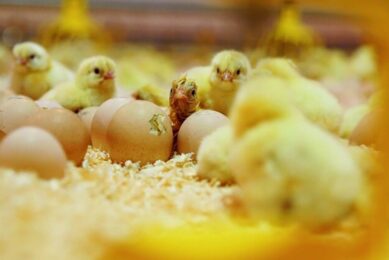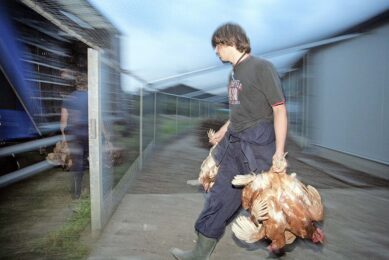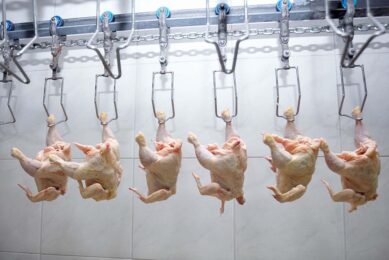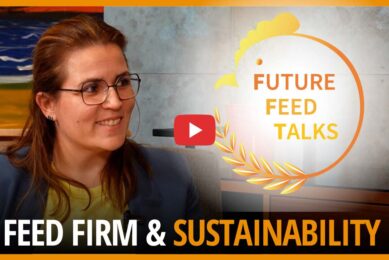Networking brings value to the poultry industry

The importance of networking businesses is generally known. But according to Dr Jeff Wilson the new science of network engagement promises everything from creation of new entrepreneurial businesses to integrated approaches to sustainability, engaging the entire poultry value chain while increasing financial abundance for everyone involved.
How do we solve the complex issues facing the world today in a way that will allow the poultry sector to thrive economically while enhancing our environmental and social sustainability?
The answer, Dr Jeff Wilson says, lies in networks and our ability to bring them together to create solutions that benefit everyone. “Imagine an organisation that you admire – it could be a global company, a large benevolent group – it doesn’t really matter. Now imagine breaking it up – and putting the leadership in a government organisation, marketing in a university, finance into a corporation – how well would it work? Obviously not very well.”
“The reality,” says Dr Wilson “is that this condition of fragmentation – or ‘siloing’ – characterises almost all of our networks in the world today. It’s so pervasive, though, that almost no-one has noticed. And the potential to integrate networks has virtually incalculable benefits for the world, including the poultry industry and individual producers.”
Why is network engagement so powerful?
“Quite simply,” says Wilson. “It allows us to combine the expertise, buy-in, and resources to create solutions that no single person, political party, or ideology could devise alone. Consider taking a new product to market – to do it quickly and profitably requires everything from inventing the product to marketing, and a host of other skills and resources – rarely does this reside in one shackle in the chain. Integration of the component network parts into a functional team is critical. The same is true of enhancing the image of the poultry industry. For the industry to improve its image it must enter into an authentic dialogue with the value chain – including consumers and advocacy groups. With that, the possibility to create solutions that satisfy the interests of everyone exists – without it, we can look forward to more years of eroding trust and half-solutions.”
Dr Jeff Wilson believes the answer to solving many complex issues facing the poultry sector lies in networks and the ability to bring them together to create solutions that benefit everyone.
If this process is so powerful, why don’t we do it more?
Dr Wilson believes that it is simply because of lack of awareness of its power, a lack of the necessary skill sets and because few of us see it as our mandate. But that’s about to change as we enter the collaborative economy. “Companies like Uber,” Dr Wilson explains, “can be viewed as early models of how this will unfold globally.” Ultimately he predicts that more inclusive models will emerge with greater benefits to everyone interested in working more closely together. He is in the process of codifying the approach so it can be learned by anyone in any field. “It’s an emergent process that is developing as we go, but fortunately the building blocks already exist from many different disciplines.”
The key elements are:
- The psychology of individual engagement. Networks consist of people. Bringing them together requires skills like the ability to empathise with others with different perspectives, to understand what constitutes value to them, and create it.
- The psychology of group engagement. Elements here include the ability to identify the full relevant network starting with early adopter champions and then harnessing the power of the adopter curve so group engagement occurs spontaneously and authentically, like falling dominoes.
- Creating an effective business process for the network. Most people understand that effective leadership, innovation, sales, and marketing are critical to an effective organisation. But few recognise that the same elements must be built into networks for them to thrive and be sustainable.
Entrepreneurial business skills
“Most important here are entrepreneurial business skills – things that anyone can use immediately in their job, their business, or their life – to be much more effective and have more fun in the process. They include practical creativity, engagement of staff, customers, and stakeholders, and tapping into your own passion. It’s literally about working smarter, not harder,” says Wilson.
Understanding and using this actually consists of a paradigm shift – so learning it isn’t quite the same as traditional textbook learning. There are a lot of moving parts – it’s a non-linear process that is best learned experientially but we’ve taught the elements to people from all walks of life. It’s like an onion – the deeper you go the more you gain understanding and proficiency in creating what you want to create. We believe it is a process that engages the ‘right brain’ that focuses on creativity, emotion – like appreciation of self and others – and seeing interconnections between ideas as opposed to the more linear learning approach that characterises traditional educational models.
At its core, the process is about understanding your own beliefs and changing them quickly and effectively, as well as having access to effective strategies for success. For example, successful entrepreneurs have critical beliefs like “I can do this – it will be fun and rewarding” and “I can speed up the process by learning from others” – this leads them to invoke strategies to move rapidly towards their goals, like taking action in the face of uncertainty and modelling the success of others. It’s also about understanding the beliefs of others and changing them ethically – the basis of ethical influence and engagement. Effective entrepreneurs typically have this in spades – so they are good at engaging critical collaborators, staff, and customers to create solutions that benefit everyone. In other words, they are good at network engagement which brings us full circle.”
Improving the poultry industry’s image
“The same fundamental process underlies a path forward for improving the image of the poultry industry,” says Wilson. “Improving the image of any industry isn’t about ‘convincing’ ‘outsiders’ that we are good people with ethical, sustainable practices. By definition, as part of the industry we lack the credibility to do that and in this day and age, credibility, trust, and authenticity are paramount. Instead, the path forward will consist of bringing together the whole stakeholder network, especially those who the core of the industry might currently distrust, like advocacy groups for sustainability and animal welfare.”
The skills for individual engagement are critical here as well – like understanding your own perspective and authentically engaging others with their interest at heart. The principles of group engagement are also extremely effective in this context. They include things like being inclusive of the whole network and beginning with early adopter collaborators, those who have a keen interest in a collaborative approach from the outset. Once they are engaged, others want to join, like a set of dominoes falling, something called ‘the adopter curve’ in the language of psychology. Managing the process, including building leadership, culture, and financial sustainability (i.e. a business process) into the network is also critical to the process.
Servant leadership – looking beyond your own interest
Leadership to do this can come from anywhere that individuals can see past their own interests and begin bringing others together to discuss a path forward that benefits everyone. This is servant leadership in its truest form and could easily include individual producers or producer organisations with the right mindset. “For individuals interested in either of these areas – or for that matter – any area that they would like to experience more success, the process starts with asking yourself some key questions.
Here are some suggestions to start, no matter who you are or what you’d like to accomplish:
- What is it that I would really like to accomplish in this context and in my life?
- What would I do if I knew I could not fail?
- Who could I work with to make this happen?
- Who already knows how to do this and what’s their telephone number?”
Join 31,000+ subscribers
Subscribe to our newsletter to stay updated about all the need-to-know content in the poultry sector, three times a week. Beheer
Beheer








 WP Admin
WP Admin  Bewerk bericht
Bewerk bericht